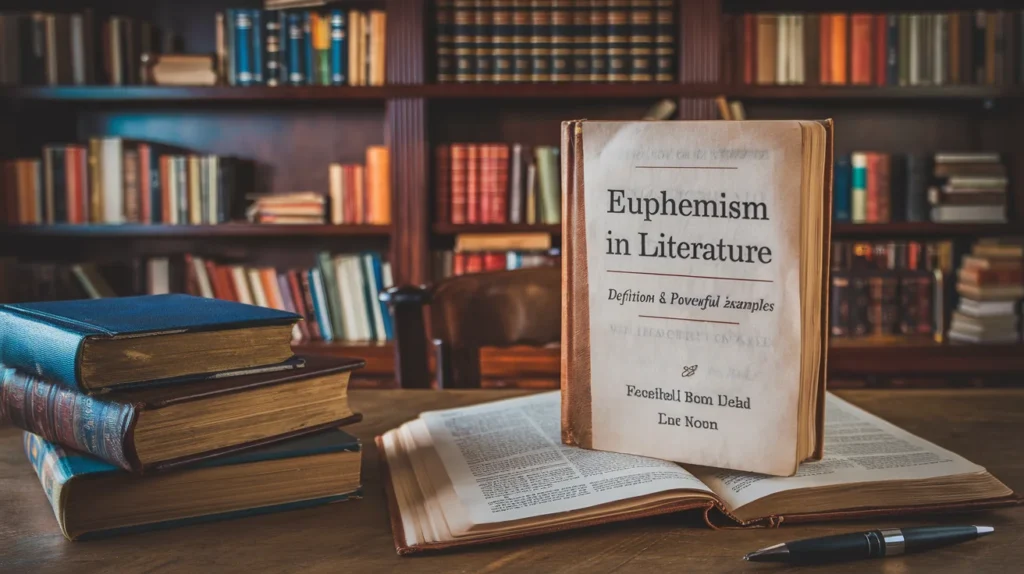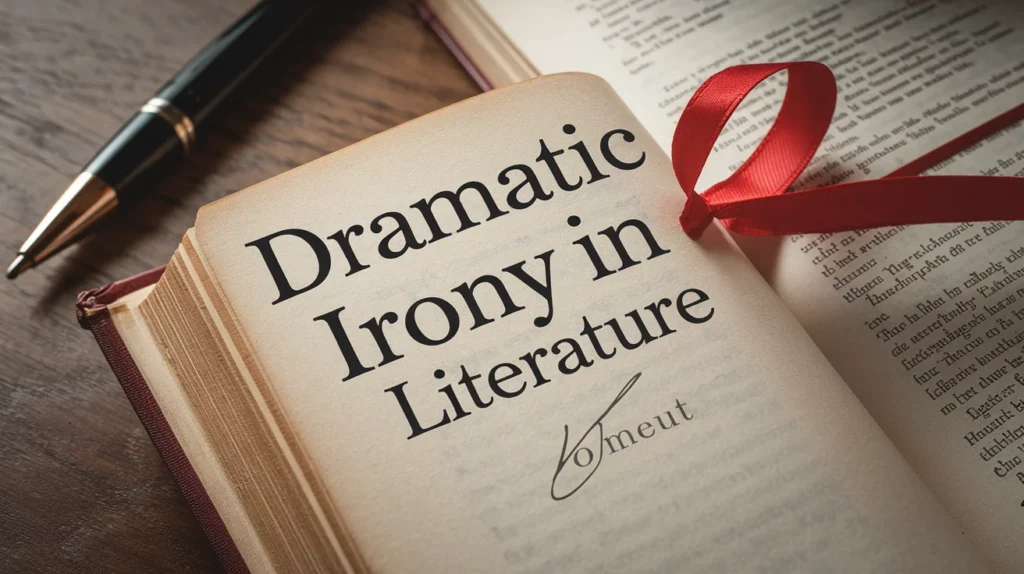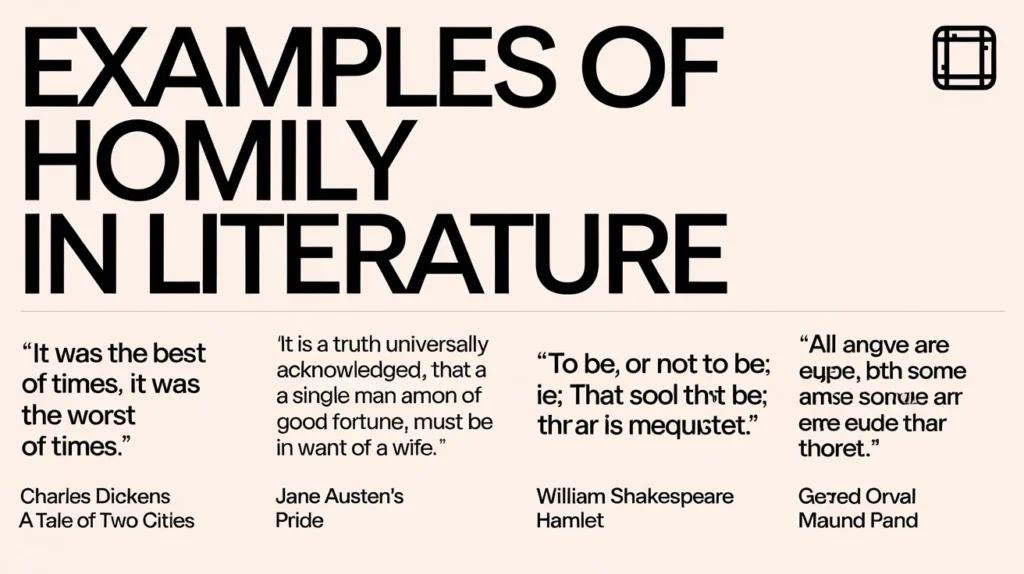Ever noticed how authors soften harsh truths with gentle words? That’s the power of euphemism—a subtle yet mighty literary device. Writers use it to mask discomfort, critique society, or even add humor. But what exactly makes euphemisms so effective?
From Shakespeare to Toni Morrison, great authors rely on indirect language to convey deeper meanings. Think of “passed away” instead of “died” or “let go” instead of “fired.” These phrases aren’t just polite—they shape how we perceive reality.
In this guide, we’ll break down:
✔ What euphemisms are (with simple, clear examples).
✔ Why writers use them (hint: it’s not just about being polite).
✔ Famous euphemisms in literature (from 1984 to The Great Gatsby).
✔ How they influence real-world communication (politics, media, and daily life).
Ready to uncover the hidden meanings behind the words? Let’s dive in!
What Is a Euphemism?
A euphemism is a mild or indirect word used instead of one that’s harsh, blunt, or offensive. Writers use them to:
- Avoid discomfort (e.g., “restroom” instead of “toilet”).
- Critique society (e.g., Orwell’s “Ministry of Peace” that wages war).
- Add humor or irony (e.g., Wilde’s “Bunburying” as an excuse for deception).
Everyday Euphemisms vs. Literary Euphemisms
| Everyday Use | Literary Use |
| “Between jobs” (Unemployed) | “Sleeping with the fishes” (The Godfather) |
| “Vertically challenged” (Short) | “The undiscovered country” (Hamlet’s death) |
| “Let go” (Fired) | “Big Brother is watching” (Surveillance in 1984) |
Key Takeaway: Euphemisms aren’t just about politeness—they’re powerful tools for social commentary and character development.
Key Functions of Euphemism in Literature
1. Softening Taboos & Sensitive Topics
Writers use euphemisms to tackle uncomfortable subjects like death, sex, or war without shocking readers.
📌 Example:
- “To sleep, perchance to dream” (Hamlet’s soliloquy about death).
2. Social & Political Commentary
Euphemisms can expose hypocrisy or mask corruption.
📌 Example:
- In 1984, “Ministry of Love” tortures people—a dark irony.
3. Character Development
How a character speaks reveals their background, education, or morals.
📌 Example:
- In The Great Gatsby, “old sport” shows Gatsby’s fake upper-class charm.
4. Humor & Irony
Writers like Oscar Wilde use euphemisms to mock societal norms.
📌 Example:
- “I never travel without my diary. One should always have something sensational to read on the train.” (Wilde’s The Importance of Being Earnest).
5. Cultural & Historical Reflection
Euphemisms change over time, reflecting shifting values.
📌 Example:
- “Consumption” (19th-century term for tuberculosis).
Famous Examples of Euphemism in Literature
1. “1984” by George Orwell
- “Newspeak” – A language designed to eliminate free thought.
- “Unperson” – Someone erased from history.
2. “To Kill a Mockingbird” by Harper Lee
- “Let the dead bury the dead” – A euphemism for ignoring racial injustice.
3. “The Great Gatsby” by F. Scott Fitzgerald
- “Old sport” – Gatsby’s phony aristocratic lingo.
4. “The Bluest Eye” by Toni Morrison
- “Soaphead Church” – A euphemism for a false savior.
5. “A Rose for Emily” by William Faulkner
- “She would marry” – The town’s polite way of saying Emily was desperate.
Related Literary Devices
| Device | Definition | Example |
| Understatement | Downplaying something’s importance | “It’s just a scratch” (for a deep wound) |
| Litotes | A double negative for emphasis | “Not bad” (meaning great) |
| Dysphemism | Harsher phrasing for effect | “Kick the bucket” (instead of “die”) |
Why Euphemisms Matter Today
- Politics: “Collateral damage” instead of “civilian deaths.”
- Media: “Downsizing” instead of “mass layoffs.”
- Everyday Life: “Seeing someone” instead of “dating.”
Question to Ponder: Are euphemisms helpful (protecting feelings) or harmful (hiding the truth)?
FAQs About Euphemisms in Literature
1. What’s the difference between a euphemism and a metaphor?
- A euphemism softens language (“passed away”).
- A metaphor compares two things (“Life is a highway”).
2. Can euphemisms be negative?
Yes! Some euphemisms manipulate (e.g., “ethnic cleansing” for genocide).
3. Why do dystopian novels use euphemisms?
To show how language controls thought (e.g., 1984’s “doublethink”).


